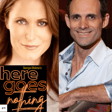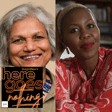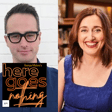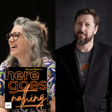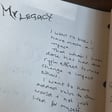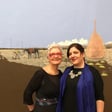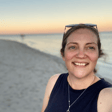
Episode 7: Arts and Advocacy with Jeremy Smith
Arts advocacy always requires its champions, and Jeremy Smith has ben a constant presence in the Australian arts scene over the last 25 years. Jeremy is a Perth-based arts administrator and self-described fierce advocate and ally for difference. Jeremy joins Georgia for a wide-ranging conversation about the state of the arts, on his origins in lighting design, and on advocacy that is all about turning empathy into tangible action.
Jeremy is currently finishing his four-year term as senior producers at Performing Lines WA, building on his past experience in arts administration with organisations like PICA, Creative Australia, DADAA, the AWESOME Festival and ArtsWA / Department of Culture and the Arts. Jeremy has worked closely with artists, organisations and communities in all corners of the country promoting artistic bravery, self-determination and brokering opportunities. In addition to his extensive portfolio, Jeremy championed Regional and Remote Australia under the Australia Council’s Cultural Engagement Framework and helped to develop and deliver key arts and disability initiatives.
For links to many of the initiatives Jeremy and Georgia discuss, check out https://heregoesnothingpod.substack.com
